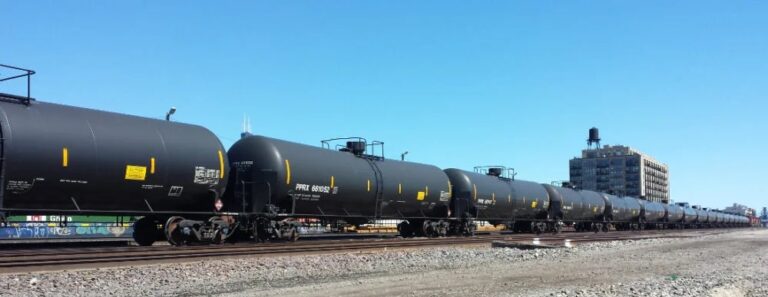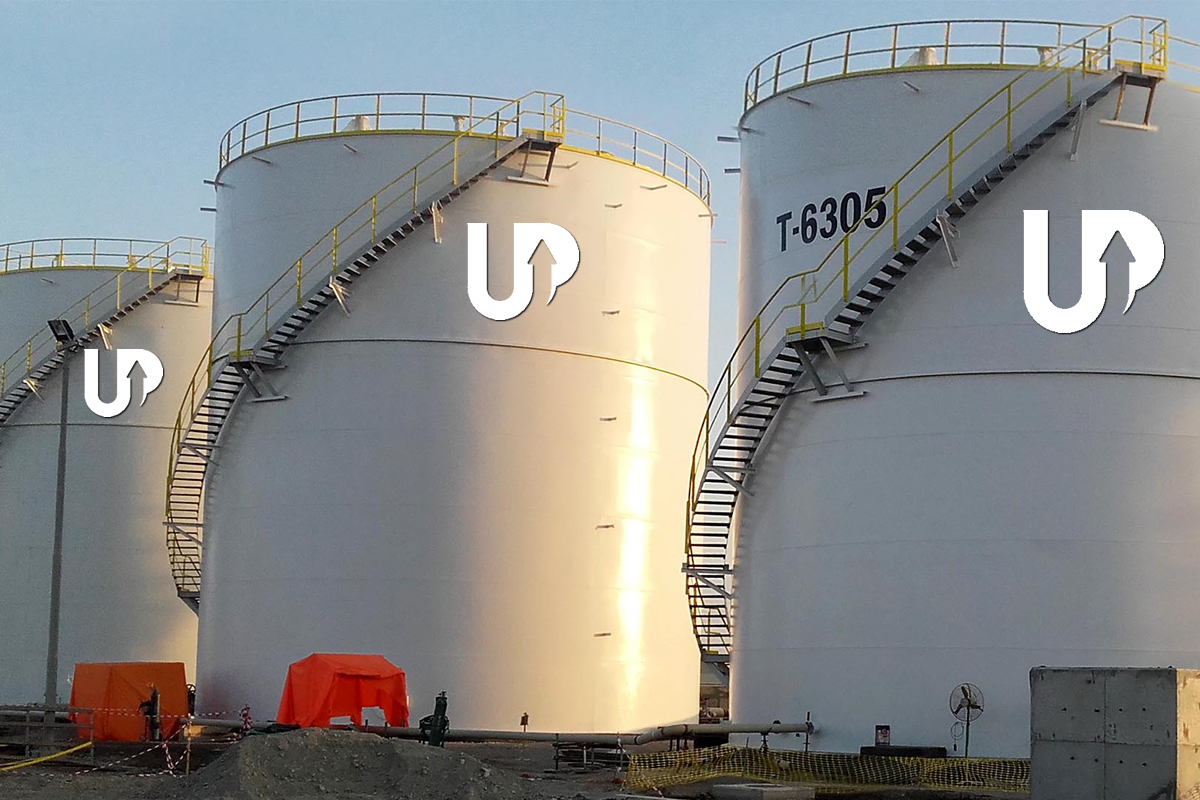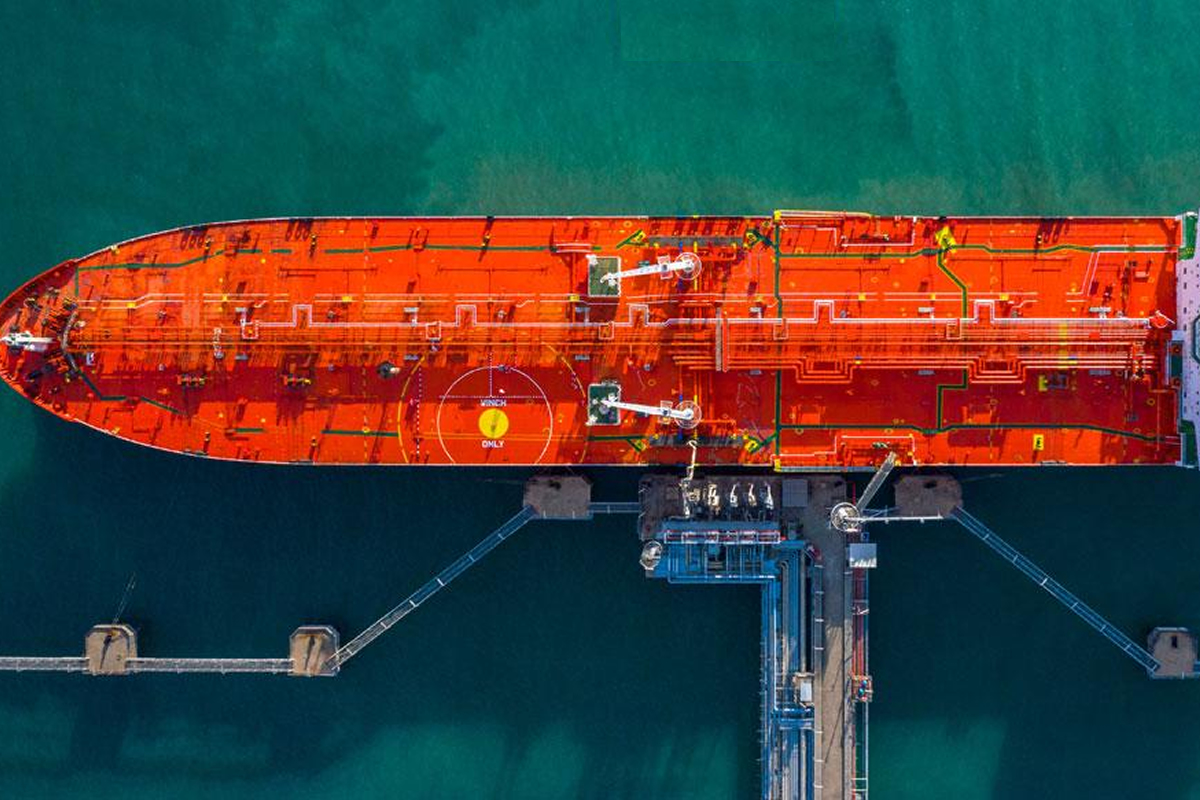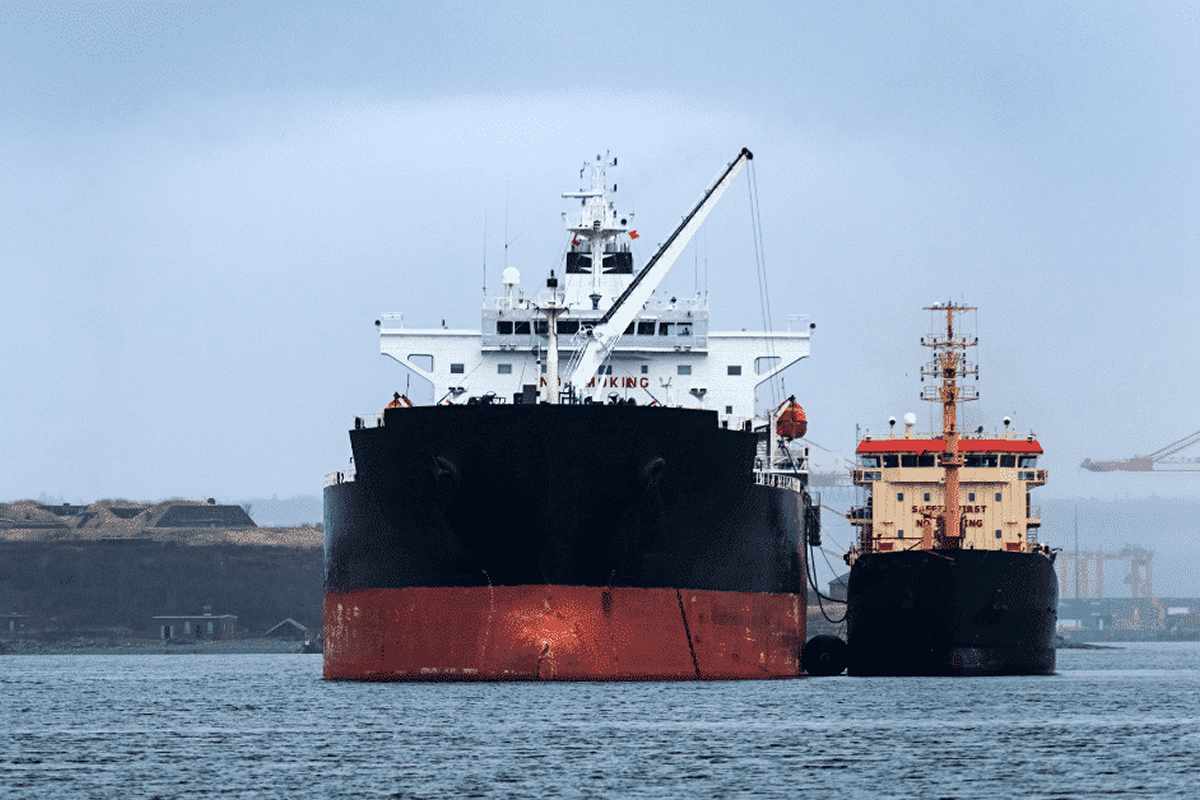Rail transport is efficient, safe and good for the environment. The two WDS terminals in Rotterdam have a well-equipped railway for quickly loading and unloading cargo. To maintain its independence, WDS has its own locomotive that operates at the facilities.
Rail cars
Tank cars are another way to move crude oil across a landmass. The oil is loaded into the tank cars, and are moved by a diesel train across the rails to the refinery or the train’s planned destination. Trains can carry a massive amount of this oil by using of multiple tank cars. Though each rail car holds a lot less oil than a large marine tanker vessel, when multiple are used a lot of oil can be transported. For example, the DOT-111 tank car is a very common tank car and can hold 131 cubic metres (820 bbl; 35,000 US gal). If ten tank cars were pulled the train would be carrying 1,310 cubic metres (8,200 bbl; 350,000 US gal) of oil, so the amount of volume increases rapidly. The locomotive used to pull these rail cars have a massive amount of horsepower and can be hooked up with other locomotives to increase the power, making the rail car a fairly cost effective way to move this oil. These rail cars, just like the pipelines, can be used to carry a refined fuel instead of crude oil from a refinery to a distributing plant. Rail cars are a common way to move this fuel a long distance to areas where they do not have pipelines set up.
Marine Vessels
Marine Vessels and barges can transport this petroleum all around the world. Because these vessels can carry a lot of fuel, the amount it costs per barrel to move this oil is very cheap. These tankers are also the only practical way to move crude oil across the oceans. Usually the larger tankers are used to transport this fuel on a global scale, taking fuel from one continent to the other. Barges are more like tankers, but smaller and do not have any method of propulsion to move them. They are often pushed or towed by tugs. This makes barges very ineffective for transporting this oil for long distances. Barges are also not applicable for traveling across rough seas, so they are used in calmer waters. However, these barges are usually used for transporting the fuel shorter distances.


Frequently asked questions
Find answers to common questions about our services in our FAQ section. From project timelines to costs, we cover everything you need to know about our garden landscaping process.
Costs depend on the scope of the project. After our consultation, we provide a detailed estimate tailored to your budget and needs.
Costs depend on the scope of the project. After our consultation, we provide a detailed estimate tailored to your budget and needs.
Costs depend on the scope of the project. After our consultation, we provide a detailed estimate tailored to your budget and needs.
Costs depend on the scope of the project. After our consultation, we provide a detailed estimate tailored to your budget and needs.
Costs depend on the scope of the project. After our consultation, we provide a detailed estimate tailored to your budget and needs.




